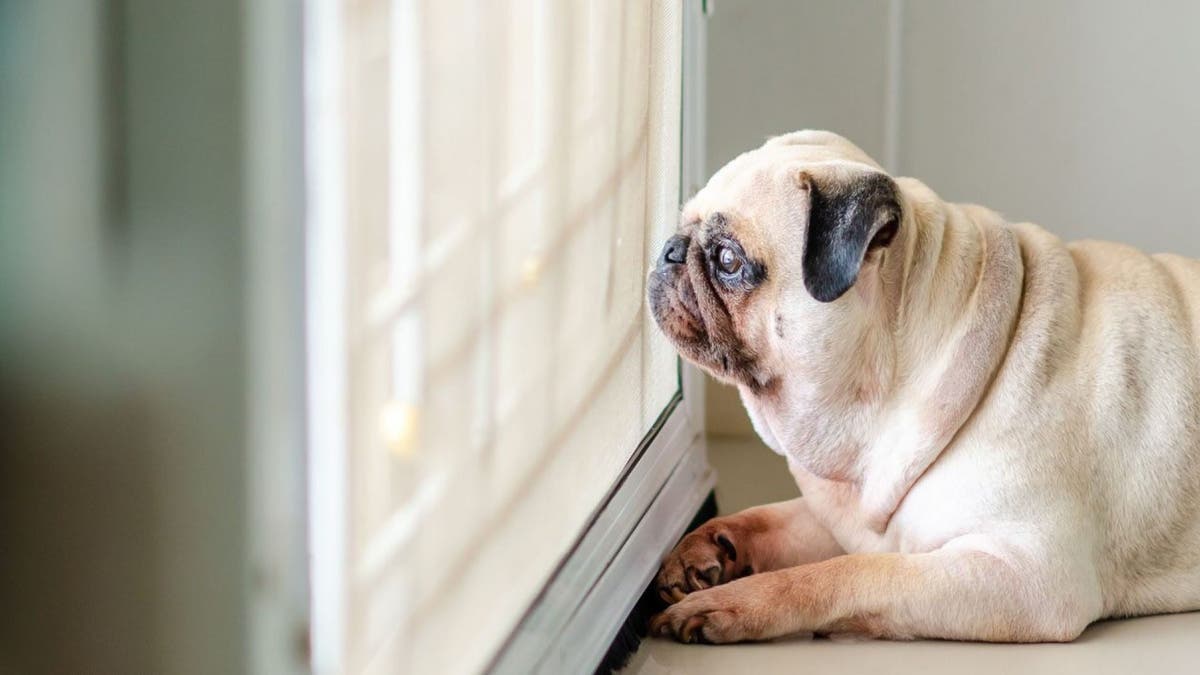Can pets transmit COVID-19 to humans?
Dr. Armitage and Dr. Siegel discuss if animal to human coronavirus transmission will become an issue
Get all the latest news on coronavirus and more delivered daily to your inbox. Sign up here.
Heads up, pug owners: Dogs of this breed may be more susceptible to the novel coronavirus due to their flat faces and squished noses, a veterinarian said.
“Pugs have brachycephalic syndrome. This gives them the appearance of a shortened snout but causes them to have upper respiratory issues,” Annie Harvilicz, a veterinarian and chief medical officer for Animal Wellness Centers hospitals, told the New York Post.
DOGS MAY SUFFER EXTREME SEPERATION ANXIETY WHEN OWNERS RETURN TO WORK AFTER QUARANTINE, EXPERTS SAY
Earlier this week, a pug in North Carolina tested positive for the novel coronavirus, becoming what is thought to be the first dog in the U.S. to contract the illness. Winston, a pug in Chapel Hill, was positive for COVID-19 after being tested as part of a Duke University study. The dog was likely exposed to the virus from three of its owners – a mother, father, and son – who all tested positive for the novel virus. Another child, a daughter, did not test positive.
“It’s possible that being a pug made him more susceptible to the virus,” Harvilicz told the Post.
Other dog breeds that are considered “brachycephalic breeds” — or those with short necks and flat faces, such as bulldogs, Chow-Chows, and Shih Tzus, among others.— could also be at a higher risk, Harvilicz said.
Winston the pug is apparently on the mend and was only sick for a few days, his owners said.

A pug in North Carolina tested positive for the virus earlier this week. (iStock)
The news comes after the Centers for Disease Control and Prevention (CDC) said this week that social distancing guidelines should also apply to pets until more is known about the virus’ impact on animals.
Pet owners are advised to not let their furry friends interact with people or other animals outside the household, and owners should walk dogs on a leash at least six feet from other people and animals. Cats should also be kept indoors when possible, the federal agency said.
For those infected with the virus, or suspected to have it, the agency recommended having another member of the household take care of your pet. If that's not possible, it advised pet owners to wear a cloth face covering and wash your hands before and after interacting with the animal.
CAN PETS COME DOWN WTH CORONAVIRUS?
There have been other reports of dogs testing positive for the virus, such as a German shepherd in Hong Kong. Two pet cats in New York also recently tested positive.
However, the CDC maintains that there is currently “no evidence that animals play a significant role in spreading the virus that causes COVID-19.”









































